This Babi Pongteh post may contain affiliate links. Please read my disclaimer.
I have always love Peranakan food, the use of aromatic ingredients prepared and cooked simply but labouriously over hours, it’s truly a labour of love. In my earlier teenage, my uncle and his Malaccan wife came to live with us and everyday she’ll make authentic and spicy food and chilli sauces which was an eye-opener for me. Later on, I lived with a Peranakan family for about five years and was very blessed to have delicious homecooked Nonya food everyday. If I have to choose a type of cuisine in the world, I’d say my favourite is the Peranakan cuisine. To prepare for this Babi Pongteh 豆酱焖猪肉 dish, I’ve learnt initially how to manually pound the paste sitting on the floor, which was quite a lot of hard work and sweat. I’m using a food processor to make the paste instead in this recipe.
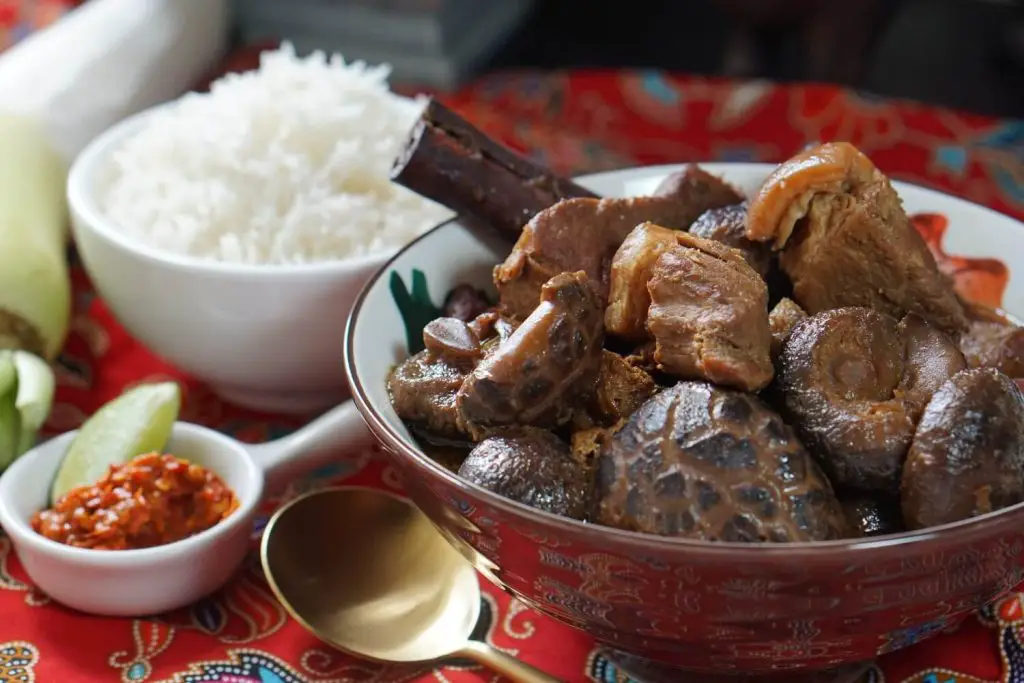
Who are the Peranakans?
The Peranakans refer to the Straits-born Chinese in Singapore and Malaysia, meaning people who were born in the former Straits Settlements (specifically, Singapore and certain parts of Malaysia, mainly in Penang and Malacca) and their descendants. They are descendants of the Chinese immigrants who went to the Malay Peninsula, particularly Malacca, and married the locals in the 15th century. Their culinary approach was greatly influenced not only by the local Malay cuisines but also by the Portuguese when they conquered Malacca in the 16th century.
What is the Peranakan cuisine?
The Peranakan cuisine is typically better known in Singapore and West Malaysia, especially in Malacca where it all originated. Their flavoursome cuisine is a result of using basic ingredients fused with unique aromatic flavours. Peranakan food marries the best of both the Chinese and Malay rich culinary traditions featuring a range of of indigenous aromatic herbs and spices.
Many times, we refer Peranakan food as ‘Nonya’ food. The Nyonya is a Malay honorific term used to describe a foreign married lady, the Peranakan man is called a ‘Baba’ and a Peranakan lady is called a ‘Nonya’. Since typically in a Peranakan family, the women cook, thus their food is commonly called Nonya food.
The other famously known Peranakan food includes:
- Ayam Buah Keluak – A quintessential Peranakan dish using the seeds of the kepayang, a tall tree native to the mangrove swamps of Southeast Asia. Its seed is poisonous if uncooked. A lot of preparation is required to cook this seed, named the Buah Keluak.
- Laksa – An aromatic spicy coconut curry broth with rice noodles and other ingredients.
- Chap Chye – A Hokkien term for ‘mixed vegetables’. It is a simple stir-fried vegetable dish, originated from China but infused with distinctive flavours of the Peranakan cuisine using taucheo and prawn stock.
- Kueh Salat – A savoury-sweet dessert made with pandan based custard and glutinous rice coloured with the natural colouring from blue pea flowers.
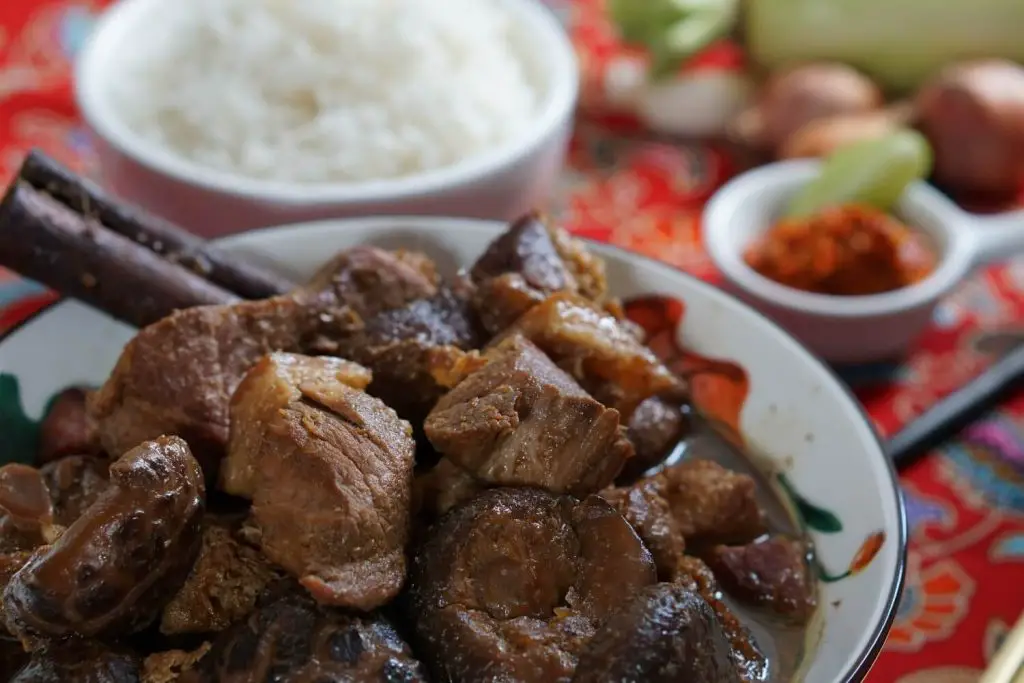
Watch my Babi Pongteh Recipe on YouTube
Preparing to cook Babi Pongteh
A few things to note when cooking the Babi Pongteh. For the meat, fatty meat is preferred to produce that rich juicy braised pork stew. You can either use pork belly but I preferred the front leg portion of the pig trotters with some fat and skin.
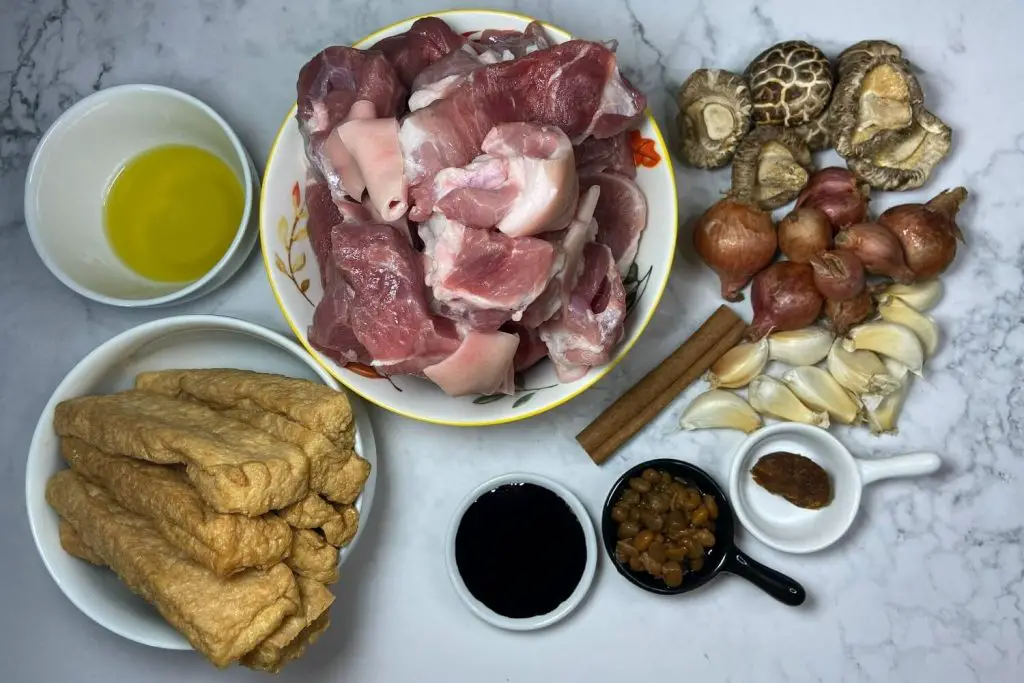
My family loves a stew with condiments such as mushrooms (a lot of it!), tofu puffs (you probably won’t find this in the true blue original version but we love adding it to soak up the sauce), black fungus (a healthy addition) and sometimes even chestnuts (for that nutty bite) or potatoes (just to have some carbohydrates). This recipe is my rendition of Babi Pongteh which typically has bamboo shoots and pound the aromatic and spices manually. Every Babi Pongteh recipe in each family or even restaurants are heavily guarded, so apart from the key ingredients, you can add on ingredients that you like that can complement the dish.
During Chinese New Year, you will find this dish sitting on the dining table in every Peranakan household. It’s a stew that you can make a day in advance as the flavours get infused into the meat and accompanying ingredients and taste much much aromatic the next day. It’s usually eaten with white fragrant cooked rice and a side of chap chye, ngoh hiang, as well as the signature sambal belachan chilli. Yumz!
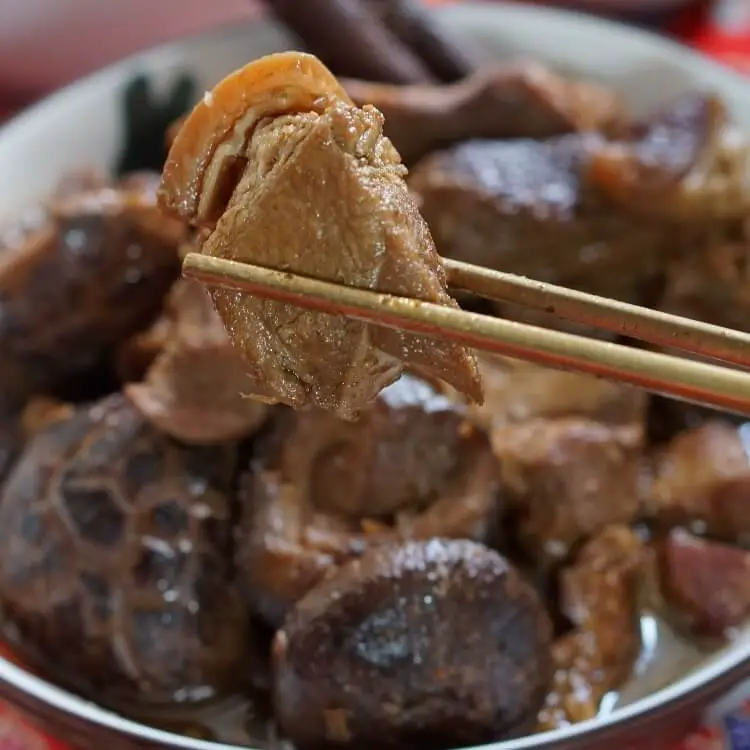
Babi Pongteh
Ingredients
- 1 kg pork trotters Ideally with some fat and skin. front leg meat or just use pork belly
- 6-8 dried Chinese mushrooms
- 5-6 tbsp cooking oil
- 8 cups water including mushroom soaked water
- 2 tbsp dark soy sauce
- 2 tbsp fermented soy bean Taucheo
- 20 g palm sugar
- 1 cinnamon stick
- 5 cloves garlic peeled and minced
- 5 cloves garlic whole wash and keep as whole
- 8 shallots
- 8 tofu puffs optional
- 1 cup black fungus optional
- Salt season to taste
- 1 cup bamboo shoots optional
Instructions
- Rinse 1 kg pork trotters , pat dry and cut into smaller chunks, about 2-4cm (if it's not already cut by the butcher). Note: The meat can be washed just before you are about to cook it.1 kg pork trotters
- Soak 6-8 dried Chinese mushrooms in warm water for about 30 minutes or until the mushrooms are softened. Once softened, cut off stem, squeeze out excess water, and set aside. Keep the mushroom soaked water for the stew later.6-8 dried Chinese mushrooms
- Peel and mince 8 shallots and 5 cloves garlic . Use a food processor to blend the shallots and garlic into a paste. Note: You can also use a mortar and pestle to pound into a paste manually.5 cloves garlic, 8 shallots
- Mash 2 tbsp fermented soy bean (taucheo) until it turns into a paste. You can also use a mortar and pestle to pound into a paste manually.2 tbsp fermented soy bean
- Wash 8 tofu puffs, squeeze out excess water and cut into bite-sized chunks. Note: You may not find this in the true blue peranakan recipe of Babi Pongteh but my family loves soaking up the sauce with tofu puffs so I'm adding it in this rendition. It's totally up to you.8 tofu puffs
- Heat 5-6 tbsp cooking oil in a deep pot over medium heat. Add the shallots and garlic paste, and 1 cinnamon stick and fry the mixture until the aroma is released.5-6 tbsp cooking oil, 1 cinnamon stick
- Add the mashed tau cheo (fermented soy bean) and stir fry with the mixture for about a minute.2 tbsp fermented soy bean
- Add 2 tbsp dark soy sauce and 20 g palm sugar and stir fry with the mixture for about 30-45 seconds.2 tbsp dark soy sauce, 20 g palm sugar
- Add the pork pieces and stir fry to coat the meat with the sauce evenly.1 kg pork trotters
- Add the mushrooms and mix well.6-8 dried Chinese mushrooms
- Add 2-3 cups of water (including the mushroom soaked water) and mix the water well with the sauce. Then add the 5 cloves garlic whole, and gradually add more water enough to cover the meat and mushrooms. I added a total of 8 cups water in this recipe. Bring to boil over high heat, then reduce to simmer for 1.5 to 2 hours or until the meat softened according to your liking.8 cups water, 5 cloves garlic whole
- Add tofu puffs in the last 30 minutes of cooking and let it simmer and completely soaked in the gravy. Feel free to add more water if you want the Babi Pongteh to have more sauce or let the sauce reduced to the thick consistency you want. Add Salt and season according to your taste preference.Note: optional to add 1 cup black fungus or 1 cup bamboo shoots.8 tofu puffs, Salt, 1 cup bamboo shoots, 1 cup black fungus
- Best served the day after. You can leave it at the stove and reheat the next day. Serve hot with rice and sambal chilli. Enjoy!

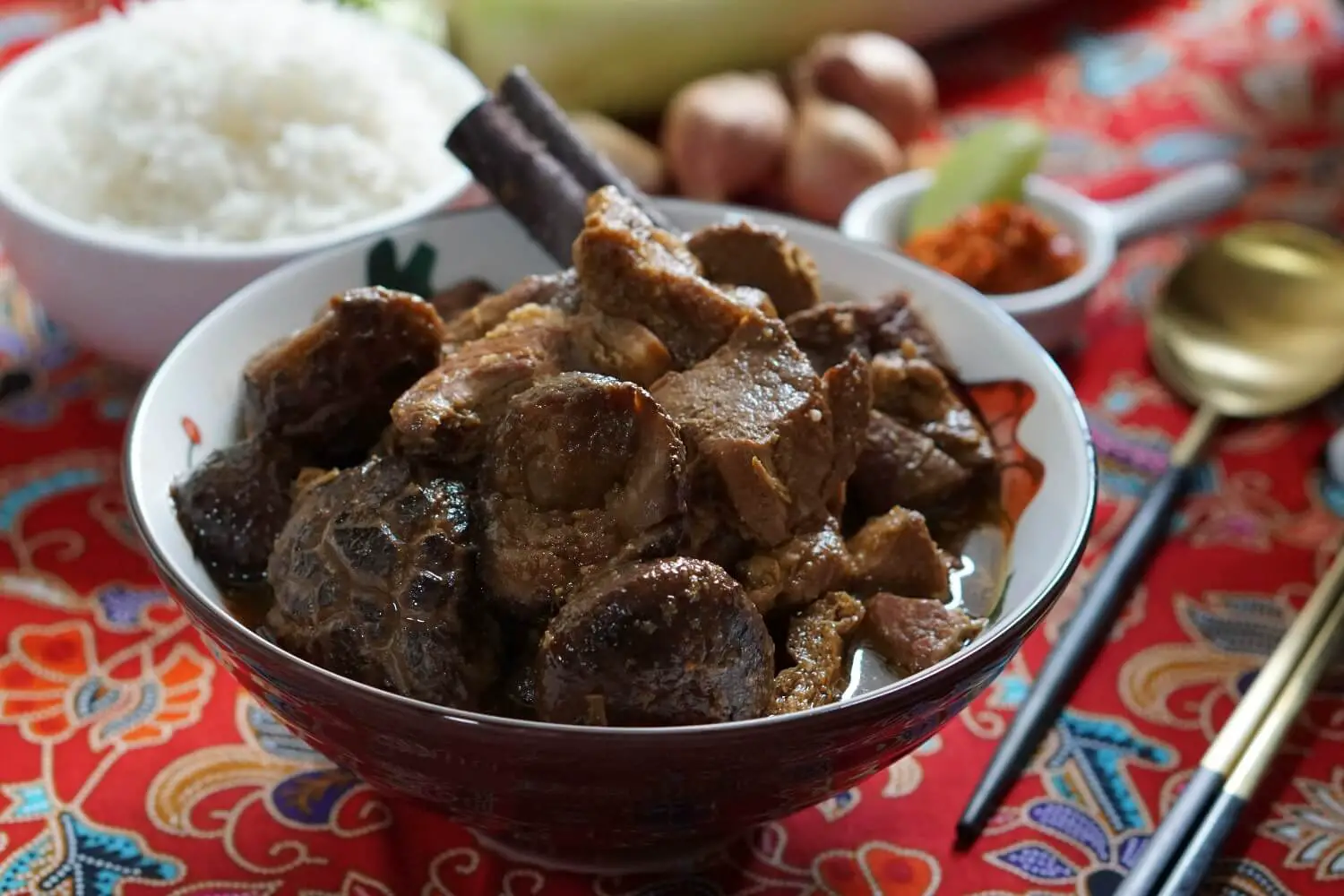
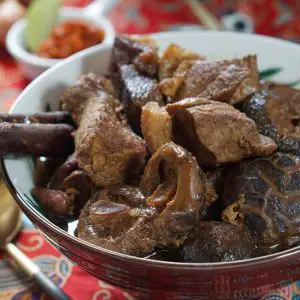
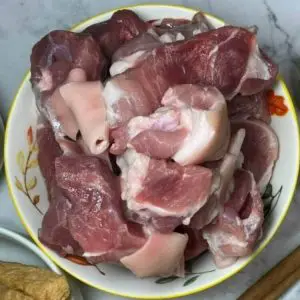
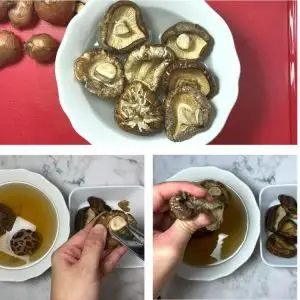
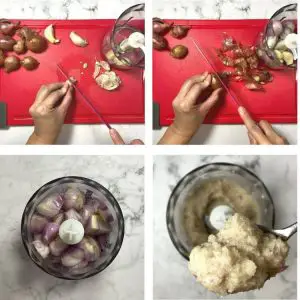
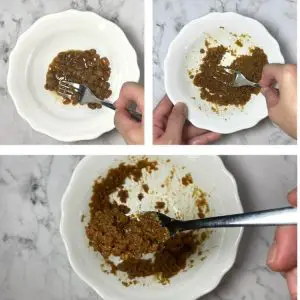
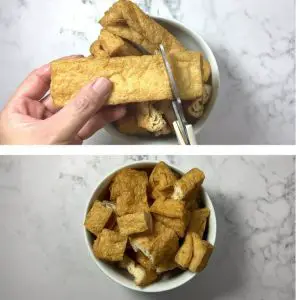
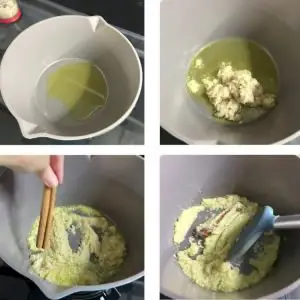
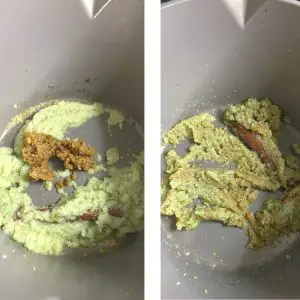
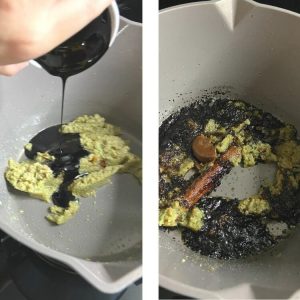
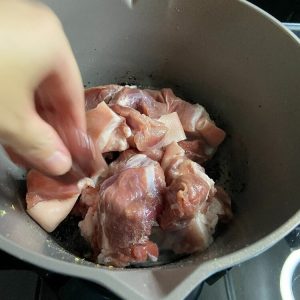
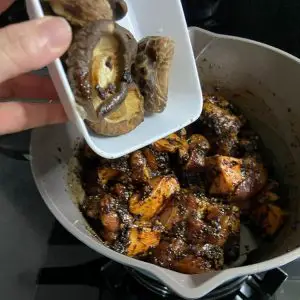
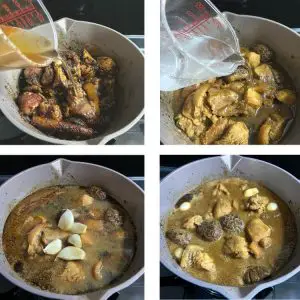
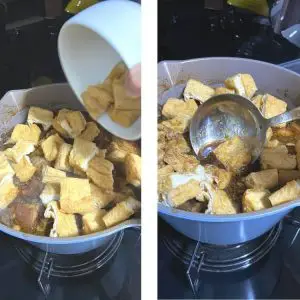
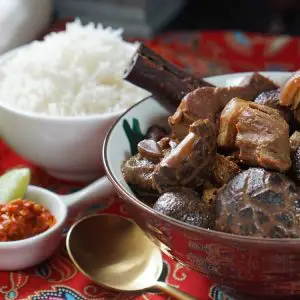
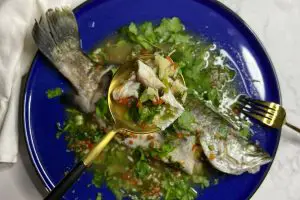 Thai Steamed Fish (Pla Kapong Neung Manao - ปลากะพงนึ่งมะนาว)
Thai Steamed Fish (Pla Kapong Neung Manao - ปลากะพงนึ่งมะนาว)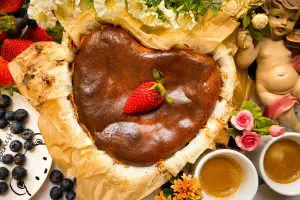 Dark Chocolate 2-Layer Basque Burnt Cheesecake
Dark Chocolate 2-Layer Basque Burnt Cheesecake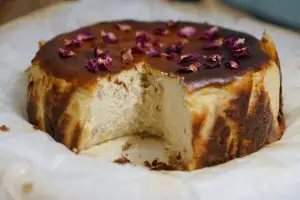
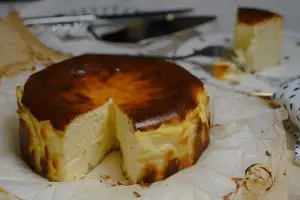
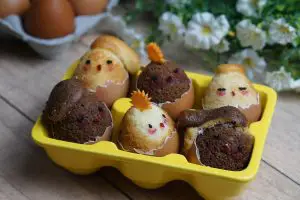


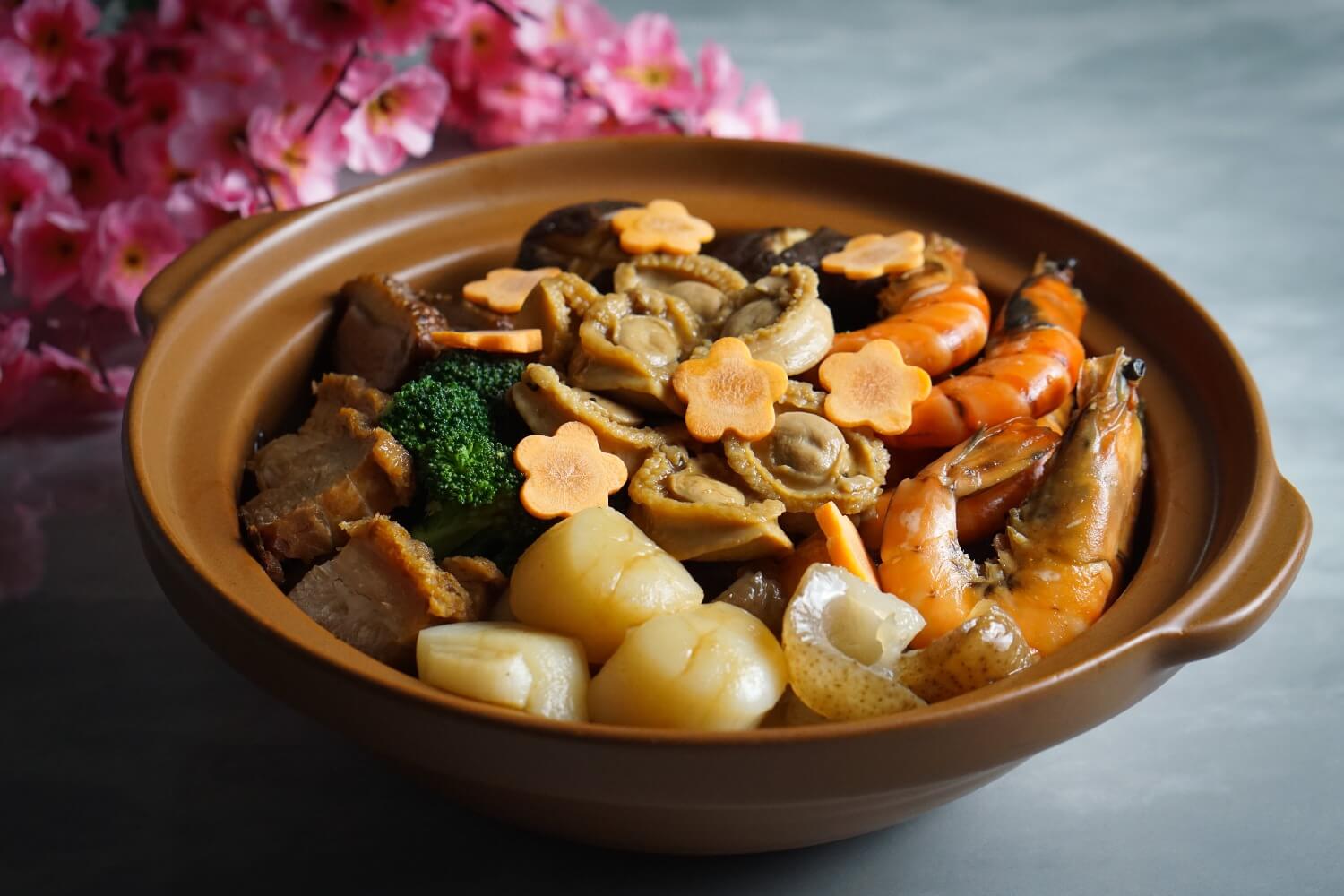
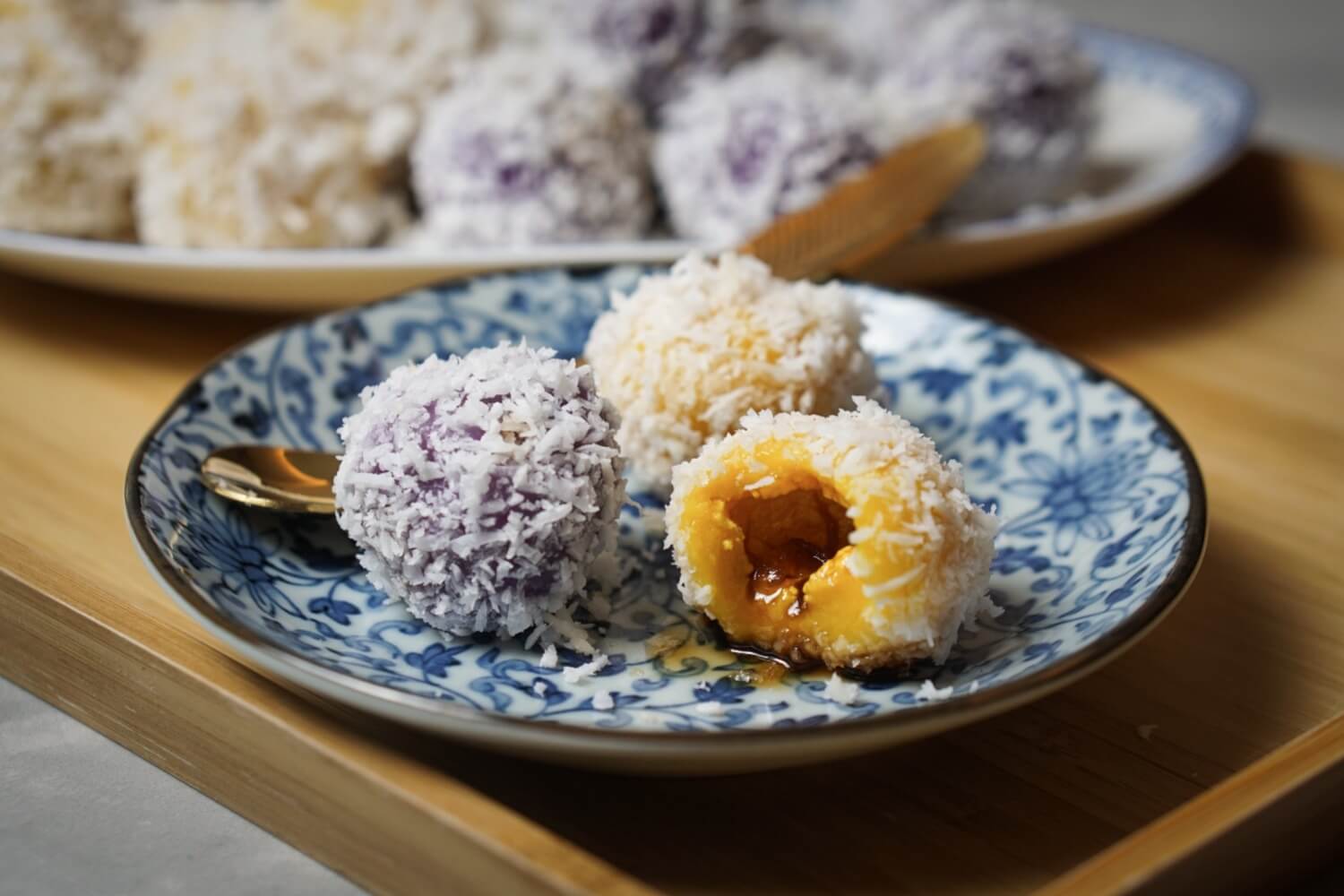
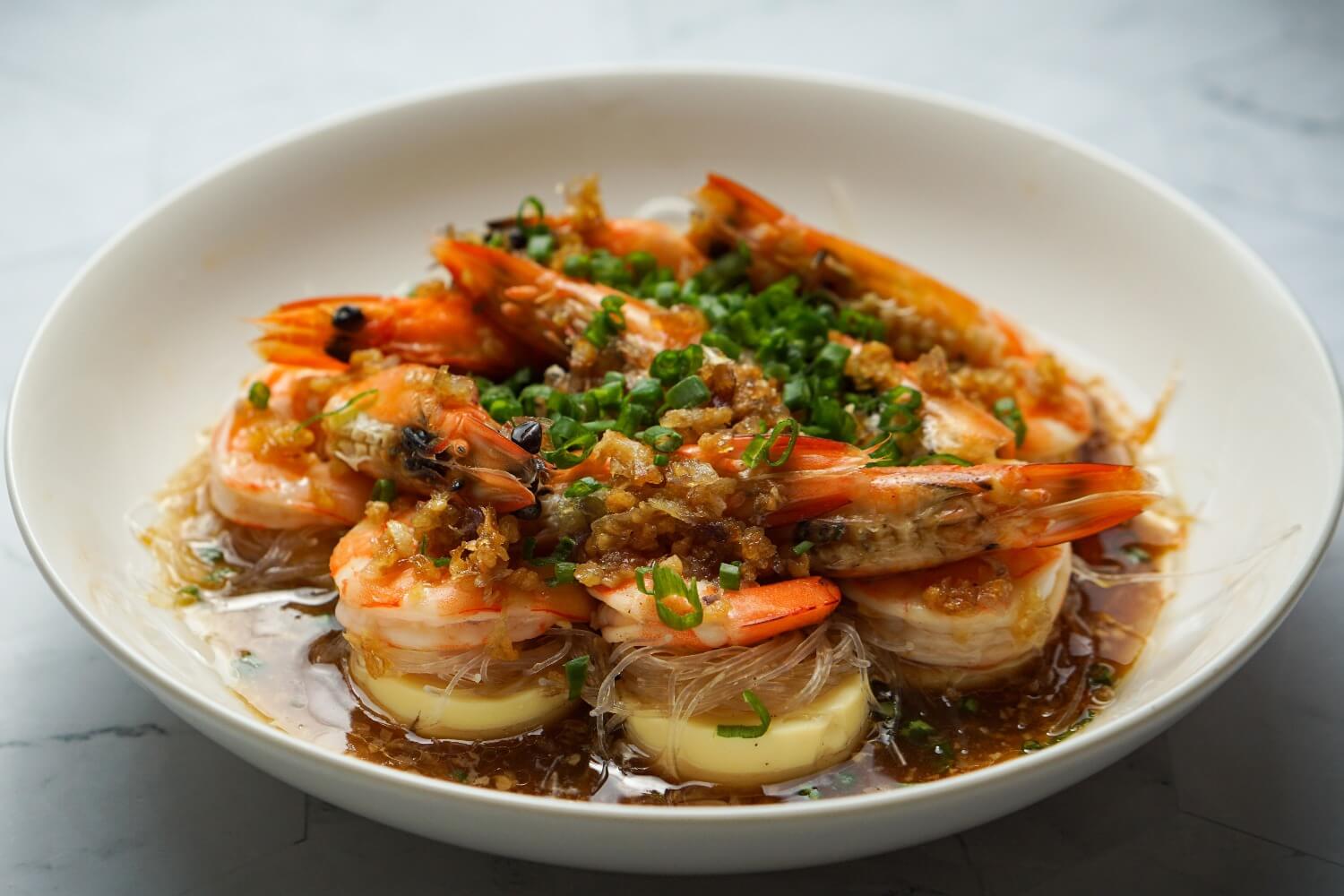
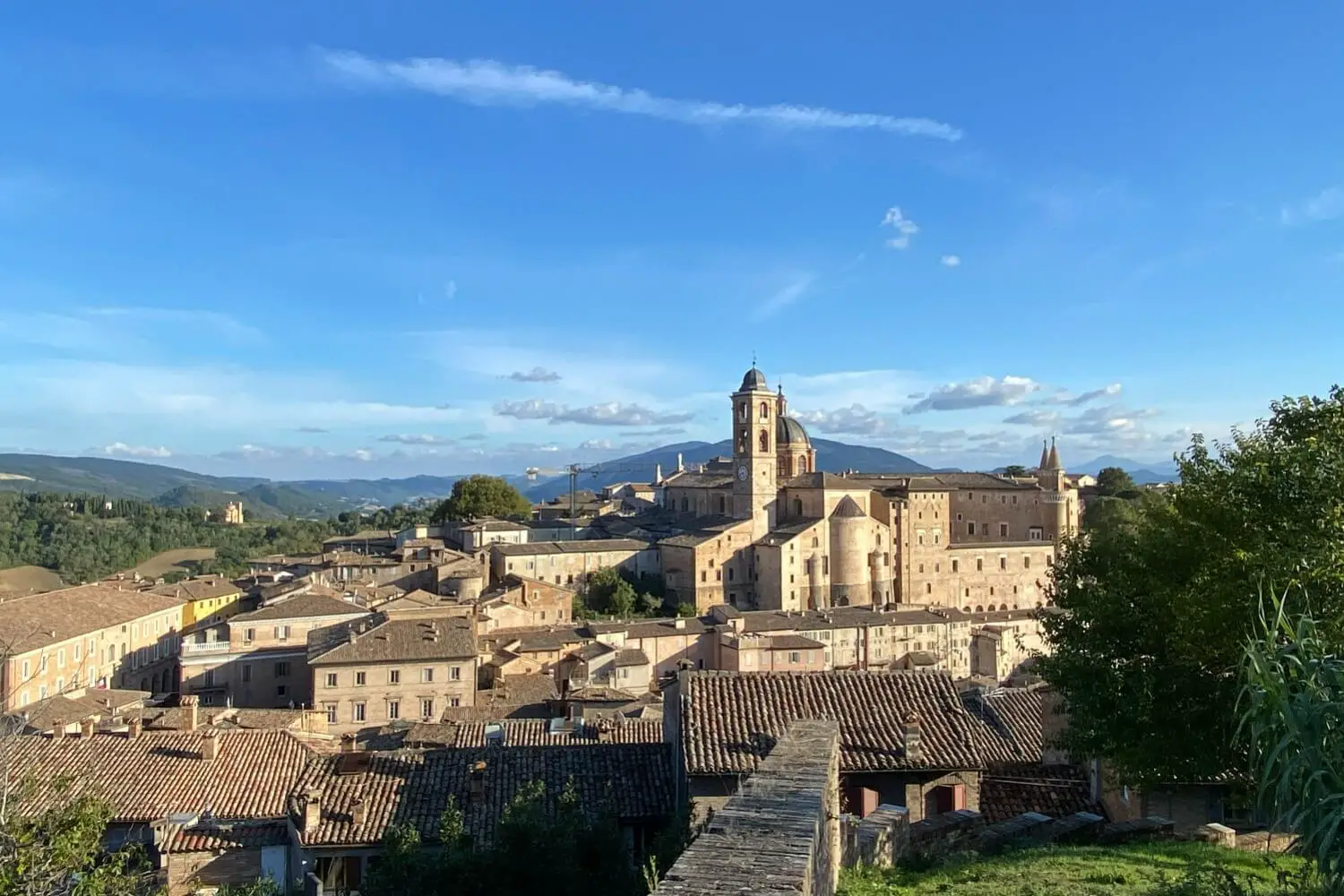
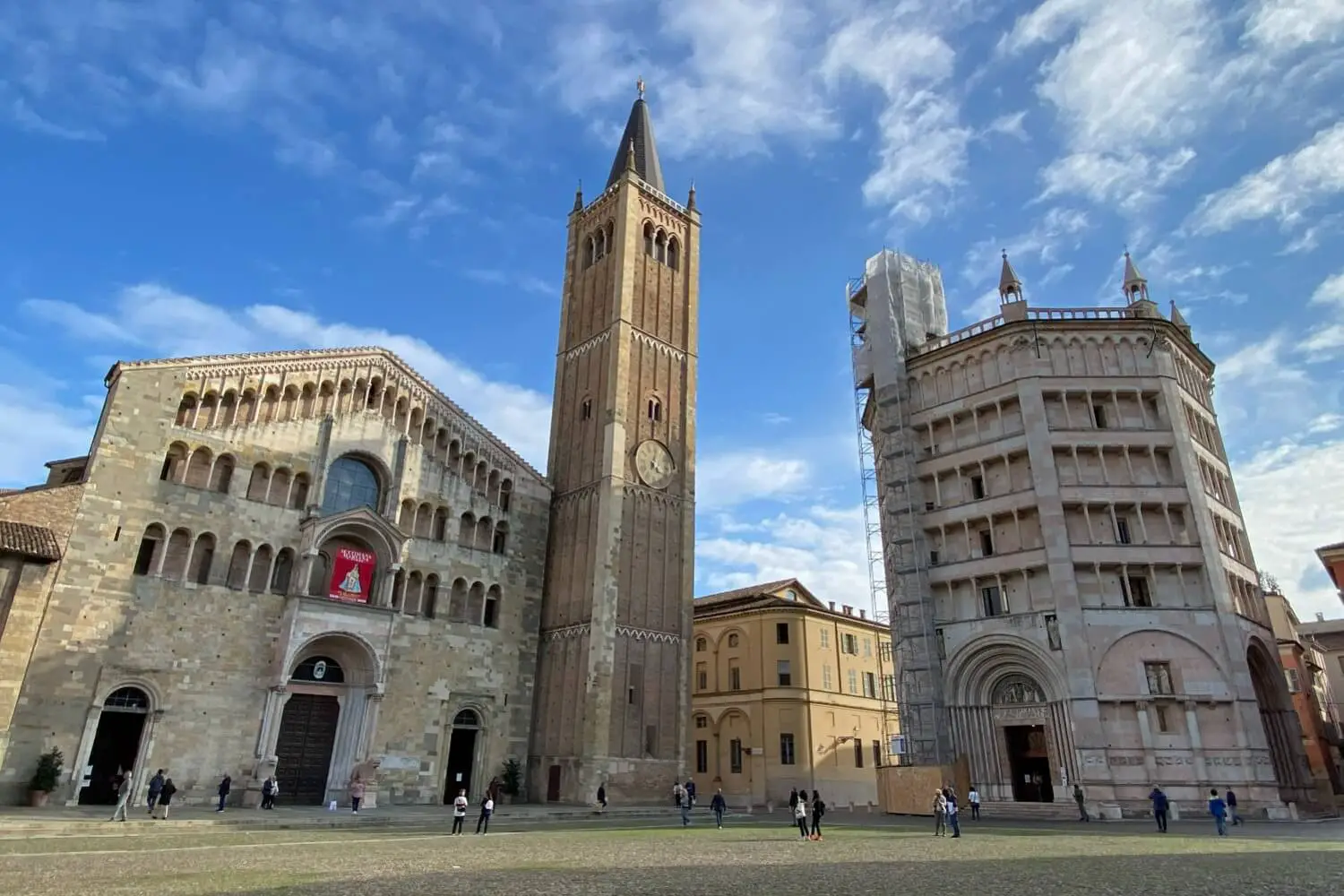

7 February 2022 at 8:00 amThanks for sharing